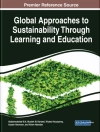Liberty and freedom are frequently invoked to justify political action. Presidents as diverse as Woodrow Wilson, Franklin Delano Roosevelt, John F. Kennedy, Ronald Reagan, and George W. Bush have built their policies on some version of these noble values. Yet in practice, idealist agendas often turn sour as they confront specific circumstances on the ground. Demonstrated by incidents at Abu Ghraib and Guantánamo Bay, the pursuit of liberty and freedom can lead to violence and repression, undermining our trust in universal theories of liberalism, neoliberalism, and cosmopolitanism.
Combining his passions for politics and geography, David Harvey charts a cosmopolitan order more appropriate to an emancipatory form of global governance. Political agendas tend to fail, he argues, because they ignore the complexities of geography. Incorporating geographical knowledge into the formation of social and political policy is therefore a necessary condition for genuine democracy.
Harvey begins with an insightful critique of the political uses of freedom and liberty, especially during the George W. Bush administration. Then, through an ontological investigation into geography’s foundational conceptsspace, place, and environmenthe radically reframes geographical knowledge as a basis for social theory and political action. As Harvey makes clear, the cosmopolitanism that emerges is rooted in human experience rather than illusory ideals and brings us closer to achieving the liberation we seek.
Spis treści
Preface
Prologue
Part One: Universal Values
1. Kant’s Anthropology and Geography
2. The Postcolonial Critique of Liberal Cosmopolitanism
3. The Flat World of Neoliberal Utopianism
4. The New Cosmopolitans
5. The Banality of Geographical Evils
Part Two: Geographical Knowledges
6. Geographical Reason
7. Spacetime and the World
8. Places, Regions, Territories
9. The Nature of Environment
Epilogue: Geographical Theory and the Ruses of Geographical Reason
Notes
Bibliography
Index
O autorze
David Harvey is considered to be one of the world’s leading geographers and social theorists. Currently director of the Center for Place, Culture, and Politics at the Graduate Center of the City University of New York, he previously held professorial positions at Johns Hopkins University and Oxford University. He is the author of fifteen books, ranging from studies in political economy and cultural change to works on urbanization, uneven geographical development, imperialism, and neoliberalism. His works are translated into more than a dozen languages, including Arabic and Chinese.












